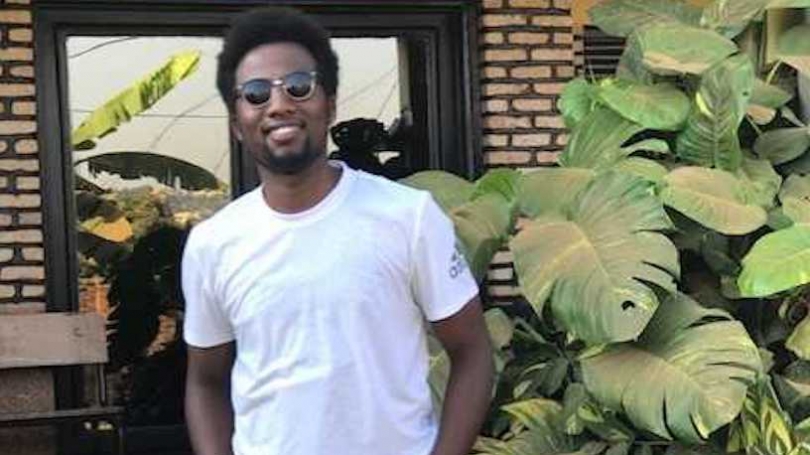
Menu
- About
- Programs
- Student Opportunities
- For Faculty
- News & Events
Back to Top Nav
Back to Top Nav
Back to Top Nav
Back to Top Nav
Back to Top Nav
Over the Summer of 2018, Edward Kamuhanda '21 interned at Interchange Learning Ltd in Kigali, Rwanda. In this position, he conducted field research with schools around the country about their STEM-readiness. Compiling his findings, he wrote recommendations for improving their capacity to meet the new demands of the national curriculum. Edward is currently a sophomore majoring in engineering. He is also an active member of the Global Village Living Learning Community. This internship experience has opened Edwards eyes to tech consulting, a field he is interested in gaining more experience in.
By Edward Kamuhanda '21 Class of '60 Named Intern
During my freshman year summer, I interned at Interchange Learning Ltd in Kigali, Rwanda. This is a youth-led platform that promotes innovation and entrepreneurship. During this incredible experience, I conducted market research to understand the current laboratory infrastructure in STEM education in secondary schools and college programs in Rwanda. I then offered recommendations for improving the practical learning experience in STEM courses in Rwanda.
Interchange Learning Ltd is a Rwandan start-up organization whose objective is to improve the education system in-country. Rwanda has a national vision to promote a knowledge-based economy and to inspire future innovators, entrepreneurs, and leaders; and in 2016 the national curriculum was changed to achieve those objectives. However, a very limited number of schools have access to laboratories for them to practically teach STEM courses. Interchange Learning Ltd, through the Makers Creative Labs (one of the company's initiatives), assesses the tech needs of schools, and works to provide laboratories in schools that are currently ill-equipped, or unable to teach the new STEM curriculum.
I was working as a market researcher, meeting with schools and giving recommendations regarding the steps that Interchange Learning should take to equip schools with the tools and training for teachers to effectively and efficiently implement practical learning programs. I spent about the first three-quarters of my internship on the field talking to students, teachers, and administrators, and the last quarter writing a report on my findings. I visited different secondary schools both in urban and rural areas, interviewing students, teachers, and administrators about their experience with the new curriculum and the delivery of STEM courses in their schools.
I also had to study the new national curriculum. While interviewing teachers and administrators, I was tasked with gauging how well they understood the new curriculum to inform the design of future faculty and staff training materials. In each school, I would visit their laboratories, if they had any, and talk to lab technicians who would give me a list of their supplies. From studying the new curriculum, and from my own experiences with STEM courses in secondary school, I was able to identify the necessary lab equipment they are missing. Currently, the company is in the early process of identifying the laboratory materials, assembling, and delivering them to specific schools. Due to the small size of the company, I went alone to conduct school interviews. Nonetheless, because of the bureaucracy in schools, it was sometimes difficult to get the attention of and set up meetings with administrators and teachers if they didn't know me. For this reason, I would ask friends who had studied in these schools to accompany me to my meetings. This broke the barriers to entry with students, teachers, as well as with the administrators, as they were more willing to talk with their former students.
Bureaucracy was the most significant hurdle to my workflow during this internship. I had expected that it would be easy to talk to students and the administrators because I am Rwandan. Unfortunately, this wasn't the case. Some schools would entirely block me and would claim that I needed a document of approval from the district's office before talking to anybody in the school. As I visited many schools in many different districts, it was tough to look for the particular document for every school in every district that I went to. That is why I decided to go with former students of specific schools so that they would let me speak to teachers without having to present the document. Besides, I was surprised to see how some administrators looked down on me and they always questioned why a young college student like me would be interested in the education system. Thankfully, I was working with an incredibly supportive team. My supervisors helped me through every bump I encountered. It was a great environment to work in if you are an independent and self-motivated person. The size of the team meant that a lot of trust and responsibility were placed in each team member. While guidance was always available if I needed it, there was not much strict oversight.
One of the skills I learned through this internship is proper communication. I learned to approach people in the right manner to fetch the correct information, and achieve a fruitful outcome. I interviewed headmasters who were at first resistant to talking to me because they thought that I was interviewing them as a journalist, or as a government informant. However, after introducing myself, and letting them know that I was a student on an independent research project, they were put at ease and were willing to talk to me.
This internship has absolutely impacted my personal and professional plans. I was interning in an environment with minimum supervision. There was no fixed deadline set for me to complete certain tasks. Although this was difficult at the beginning, it taught me to be self-directed and motivated in every job I am given.